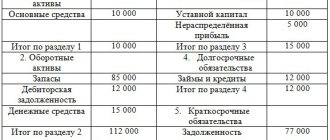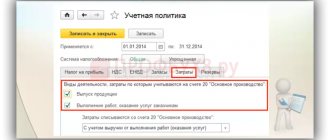The management of any company cares about its development and promotion in the market. Taking an organization to a new level and its further growth depends to a large extent on the personnel who work in it.
Accordingly, in modern business conditions, employers want to see in their employees not only knowledge, experience, qualifications, ingenuity, responsibility and other business qualities, but also a willingness to “live” for work. After all, no one is immune from the occurrence of any problems or issues that need to be urgently resolved. Also, situations very often arise when deadlines are running out, and like it or not, you need to be on time, etc.
For these reasons, employers are increasingly providing employees with irregular working hours, which for many organizations is preferable to overtime. Since an employee can be involved in overtime work only with his consent, the employer is also obliged to document each such case. Moreover, according to Part 6 of Article 99 of the Labor Code, the duration of such overtime cannot exceed four hours for two days in a row and 120 hours per year. For overtime, increased compensation must be paid (for the first two hours at one and a half times, for subsequent hours at double) or, at the request of the employee, additional days of rest must be provided.
Concept and legislative framework
Modern Russian Federal legislation considers the definition of irregular working hours (Article 101 of the Labor Code) as a special labor regime , all conditions and agreements of which are established exclusively by a collective decision, with the mandatory participation of the employer and a representative from the employees.
The bottom line is that representatives of positions specified in the regulation on irregular working hours may periodically be involved by the employer in their direct work activities even after the expiration of the normal working day (for example, after work, or on weekends).
However, this must be specified in the employment contract with the consent of all parties.
What period of work can be considered “irregular” is a fairly common question that employees regularly face when applying for a job.
You can find a sample provision for irregular workers here.
At the same time, not only ordinary workers, but also employers themselves are not in all cases able to competently and consistently explain (including to their employees during employment): what is work activity with an irregular schedule. As a result, complex conflicts often arise, which sometimes have to be resolved through litigation.
According to the law, the employment contract or the local laws of the company’s work schedule must list all direct responsibilities without exception , as well as a full description and description of the scope of work of the employees for whom the irregular working hours procedure is introduced.
Read this article on how to draw up an employment contract with irregular working hours.
Equally important is the clear and consistent familiarization of the employee with all corporate official documents and regulations directly related to his activities as part of this organization.
This is important to do when hiring before signing an employment contract, since it is important to indicate that the employee is aware of the existence of a system of irregular working hours, and also that he is clearly aware of his responsibilities in accordance with the employment agreement in this context.
Often, when applying for a job, an applicant fills out a questionnaire in which there is a question about agreeing to work on an irregular schedule.
In the event of litigation, where the plaintiff may try to prove that the employment contract did not indicate certain responsibilities of the employees, which means the defendant is obliged to pay certain compensation.
The use of an irregular labor regime in budgetary organizations with a fixed salary may be allowed in special cases, when using the labor of persons working in specific positions specified in the relevant lists.
The introduction of a system of irregular working hours in a personal form is carried out according to the order of the head of the organization with notification to the employee no later than two months.
Employees for whom a general procedure for irregular working hours has been determined are freed from the need for any work activity on weekends and holidays, except in emergency situations, as well as situations initially discussed and agreed upon in the employment contract or local work schedule instructions.
If the employment contract does not contain any clauses regarding such work issues, then isolated cases of work during the period described above should be compensated in accordance with the general procedure.
Employees working under an irregular system may be assigned work under their work contract that will take more time to complete than standard working hours. Engaging these workers in this type of activity is not classified as overtime and is not paid overtime.
An irregular working day is a special labor regime, with special labor criteria, in which, according to Article 119 of the Labor Code, the employer is obliged to provide the employee with annual compensation in the form of leave (in addition to the main one).
The minimum amount of additional leave is three days , but the actual duration of paid leave when working in irregular hours is indicated when drawing up the corresponding employment contract.
At the same time, according to the order of Rostrud dated May 24, 2012 , leave is granted to any employees working on an irregular working day system, regardless of the factors that attract them to work outside the standard working day.
Leave may also be granted to persons who combine part-time work and irregular work.
The employee, according to Art. 126 of the Labor Code, has the right to go to the employer with a request to replace paid leave with cash payments.
But the employer is required by law only to promptly pay compensation to the employee in the established amount, and the employer can change the type of compensation at his own request.
About payment
Many people are concerned about wages, since with a non-standard schedule people expect to receive more. However, for irregular working hours, funds will be accrued in the usual manner, taking into account working hours. The Labor Code of the Russian Federation states that a person must be given additional leave. Its duration is 14 days or more, which is added to the main annual vacation.
Important! You can take cash instead of extra vacation, so you don’t have to take a longer vacation. To receive compensation, you will need to write an application addressed to your boss.
If the work is overtime, a fixed additional payment will be required. A person can count on an increase if he had to work at least one hour at night. If he performed duties after 10 pm, he will be given an additional payment of 20% of the rate. When working on holidays, wages are paid at least double the amount. There are similar rules in the Labor Code of the Russian Federation, so the employer cannot fail to comply with them.
How many hours does it last and to whom is it installed?
An irregular schedule does not imply the presence of standards for calculating hours, in contrast to standardized time, where the normal work schedule is precisely the sum of working hours that are compared with minimum or maximum indicators.
An irregular day is an excess of the standard work schedule, for example, if the typical work schedule is 9:00 - 20:00, then the deviation can be two hours . The conditions are drawn up individually when drawing up the appropriate contract.
Of course, not all employees of the company that signed the corresponding agreement work in this kind of labor regime, but only employees of special positions included in the corresponding list of specialties suitable for the irregular work schedule.
By order of the Federal Government No. 100, employees from the following categories can be included in the list of positions of employees with irregular working hours:
- Managerial, economic, material and technical staff;
- employees of an organization whose work activities during the working day are not subject to temporary reporting, i.e. various sales consultants, distributors, agents, etc.;
- employees of the organization who allocate their own time independently;
- employees of an organization whose work schedule, according to the nature of their activity, is divided into temporary parts of various durations.
The approval of a system of irregular working hours is also relevant for employees working part-time (although this does not include persons working part-time).
Separately, there is the issue of including in the list of positions of employees with irregular work schedules those individuals whose work activities do not lend themselves to specific time accounting , or individuals who distribute individual working time at their own discretion.
They can, without the support of other employees or the employer, regulate all work-related problems that arise if questions arise about the “irregular” mode, i.e. exceeding the threshold of the normal work schedule, if this procedure is established by official job management, or in accordance with local regulations.
In these conditions, the basis for work under the system of irregular working hours is the personal initiative of a company employee, that is, in this case, there is no requirement for a prior decision from the company management to involve such an employee in work.
The system of irregular working hours, in addition, can be used for car owners of passenger cars, drivers organizing forwarding transportation, employees of design and survey organizations, and the like.
The duration of the shifts is selected individually, based on the labor productivity of each individual employee and according to the schedules of their work activities with a standard working week.
A special working day regime is introduced for such persons with confirmation of a representative from the employees.
At the same time, the formation of such an order is not considered a reason for non-compliance with the already existing laws of work routine within the company. All employees, without exception, are subject to working conditions determined by the Labor Code of the country, as well as local labor acts.
You can download a sample employment contract with irregular working hours here.
There are no prohibitions on the use of irregular work by pregnant or lactating women, the disabled, or the elderly (of course, unless such activity is directly prohibited for them due to their medical conditions).
Benefits for irregularity
A person with such a work schedule is subject to the enterprise regime. That is, he cannot come and go whenever he wants. The start and end times of the working day for such an employee are the same as for everyone else. But sometimes, by order of the employer, he can be involved in additional work both before the official start of the working day and after its end. Please note that this rule does not apply to hiring an employee on a day off. Such work is equivalent to extracurricular work and must be paid at an increased rate. We wrote about this in detail in the article on calculating overtime.
Work beyond the norm is not paid additionally, but is compensated by providing additional days of vacation (at the request of the employee). The minimum number of days is three (Article 119 of the Labor Code of the Russian Federation). An enterprise can establish a larger number of days of additional leave, enshrining this in local regulations.
At the request of the employee, additional leave can be replaced by monetary compensation (Article 126 of the Labor Code of the Russian Federation). To do this, you need to make a written application.
Irregular working hours at the Ministry of Internal Affairs
In accordance with Federal Law No. 342-FZ of November 30, 2011 , an irregular duty schedule may be introduced for police officers holding senior and senior management positions.
According to the instructions of the internal police regulations, an irregular duty regime can be approved in relation to persons occupying positions corresponding to those included in the list of positions ratified by the Department of Internal Affairs that may be involved in irregular work.
At the same time, such employees are entitled to additional official leave in accordance with Part 5, Section 53 of the Federal Law of November 30, 2011.
How to install?
To begin with, you should fix the list of employee positions with irregular working hours in the main regulatory act - regulation .
Lists of positions may be ratified by company branches, subject to slight local differences. But if it is necessary to develop a general aspect of the approach to closing this issue, it would be more correct to adopt a single list for the entire organization.
When hiring, the employment contract must reflect all relevant requirements and conditions regarding irregular working hours, or when changing the work schedule by concluding an additional agreement.
Download a sample additional agreement on irregular working hours here for free.
The mere written presence of a particular position in the approved list of specialties does not mean at all that an employee who fits the category of these positions will automatically be assigned to a normalized working regime.
In addition, information about monetary compensation should certainly be recorded in the work contract or in an appendix to it.
The system of irregular work activities implies that employees (irregularly) can be involved in work activities that extend beyond the boundaries of the ordinary working day specified in the employment contract.
At the same time, the code does not specify what exactly this resolution should be (it is best to issue an order in writing ).
When working on an irregular schedule, the employee is obliged to fulfill exclusively his own immediate work obligations. To perform any other activity not specified in the official employment contract, it is necessary to conclude an additional agreement (Article 60, Labor Code of the Russian Federation).
Registration of attraction to work beyond the norm
The procedure for attracting workers to work beyond the norm during irregular working hours is not regulated. In practice, recruitment is often carried out on the basis of a verbal order from the boss or on the initiative of the employee himself who did not have time to complete the task. It seems that in order to guarantee the rights of employees, it is advisable for them to require a written order from the employer to engage in work beyond the norm, otherwise it will be difficult to prove the existence of such an expression of the employer’s will.
Restrictions on business trips or irregular working hours
The Federal Labor Code does not contain any direct prohibitions on the establishment of irregular working hours or business trips for persons for whom, according to federal law, a reduction in the duration of the general labor regime has been taken into account (this includes persons under the age of majority, persons with disabilities of the first and second groups, pregnant women, etc. ).
Although experienced lawyers usually do not advise doing this, mainly due to the special legal status of these categories of persons , and, accordingly, their increased protection. This can cause many problems.
For example, problems may arise with various bodies protecting the rights of pregnant women, which, in the event of litigation, may appeal to the violation of the rights of a pregnant employee and refer to the lack of reduction in physical activity.
That is, the introduction of an irregular work schedule for pregnant women is in itself a reason for legal action by the relevant human rights bodies. In this case, the judicial authorities are more likely to take the side of the prosecution than the side of the defendant.
Time tracking
Work time records should be kept for each employee, excluding positions that do not provide for the possibility of such records.
However, these are internal corporate conventions, since the federal Labor Code, which officially regulates the recording of employee time, does not describe any direct exceptions. The Labor Code states that an employer must regularly keep track of the time worked by any of its employees.
Employees are paid wages precisely after checking the time sheet , and working time allocated above the standard working day during irregular working hours is not subject to overtime pay.
Taking into account the above information, today there are 3 main principles of approach to the problem of accounting for overtime work during irregular working hours:
- In the overtime work report sheet, you simply need to indicate the actual amount of time worked and recorded by the employee;
- all overworked time that goes beyond the boundaries of the standard working day must be recorded not in the time sheet, but in another internal corporate document, in accordance with the decision of the organization’s management;
- There is no need to document any overtime work at all.
You should always take into account the overtime period of your employees when filling out time sheets or other corporate documents.
This condition can significantly help in the future, during litigation, for example, when there is a need to clearly determine the circumstances under which the employee was at one time or another, and also to record the fact of his presence at the workplace (this may be important in situations such as injury at production).
How to apply for overtime
The situation is different with the documentation of involvement in overtime activities.
As a rule, the need for overtime activities arises suddenly, and there is not much time left to prepare documents. Therefore, if the employee does not belong to a special category, and the need to leave is related to emergency situations, then it will be enough to issue an order to attract additional work and familiarize the employee with it. In this case, his refusal to withdraw may be accompanied by an administrative penalty.
If the need to leave outside the schedule is not of an emergency nature, then consent to leave must be obtained from the employee. This can be done both on the order itself and on the notice of involvement in overtime work, which can be issued in advance (see Notice of involvement in overtime work and order).
In the timesheet, overtime is indicated by the letter “C” and the number 04. Payment for it is made as follows: for the first two hours - at one and a half times, for subsequent hours - at double. This is the minimum compensation established by the Labor Code.







